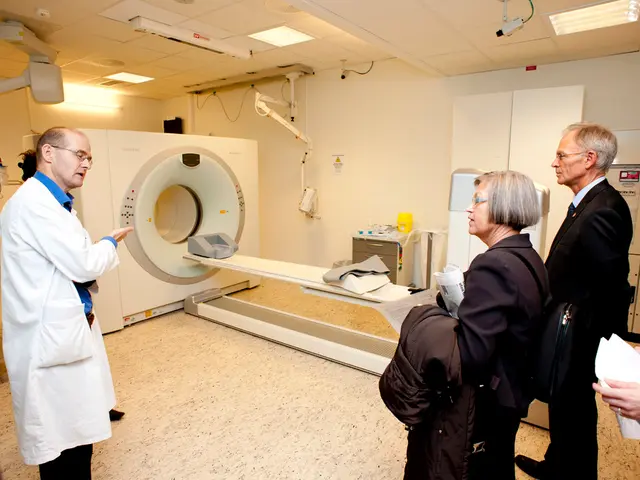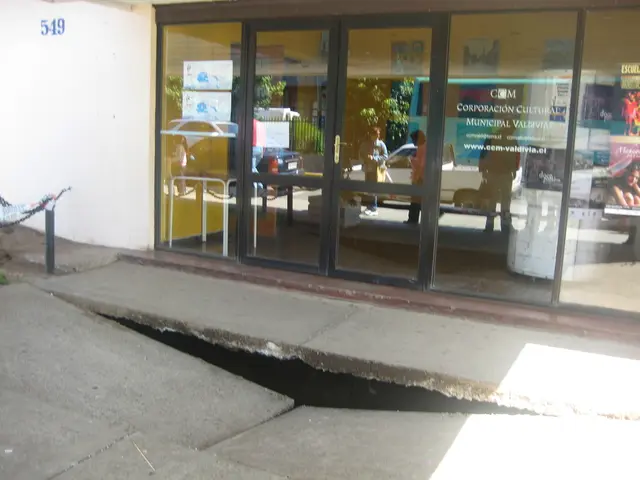Law enforcement officers encircling the dwelling place of rebellious individuals
In a Ruckus at Bremerhaven-Leherheide
On a Wednesday morning, neighbors in Bremerhaven-Leherheide didn't hesitate to dial 911, reporting a commotion in a multi-family residence. Officers on the scene discovered a 27-year-old man, his face contorted in a snarling, unhinged rage, brandishing a dreadful blade.
Cornered by the police, the volatile individual barricaded himself within his apartment, leading to the deployment of additional officers to surround the premises. Efforts to coax him into communication failed miserably, leaving authorities in the dark about his intentions. The apartment's door was, thus, forcibly breached with the assistance of the fire department.
A Forceful Subjugation
The combative resident put up a struggle, attempting to bar the door shut with all his might. Yet, the officers, driven by the need to protect and serve, successfully overpowered him. His erratic behavior raised enough alarm for him to be rushed off to a nearby hospital for evaluation.
Now, police are delving deep into the matter, probing for allegations of threats and resistance.
Image source: Shutterstock
As for the ins and outs of these types of situations in Germany, here's a brief rundown:
Police Interventions in Deutschland
- Dealing with Disruptions: Initial police response to disturbances involves swift action to quell the situation. When someone's swinging a blade with menace, de-escalation tactics take priority to ensure everyone's safety.
- Use of Force: Proportionality is key when it comes to German police force. If an individual threatens others with deadly weapons, officers may employ various tactics for neutralization, including verbal de-escalation, physical restraint, or non-lethal force.
- Medical Response: Should injury befall an individual or mental health concerns arise, medical professionals are summoned to the scene. Depending on the exigency, paramedics, or emergency psychiatry teams, may step onto the frontlines.
- Legal Proceedings: Post- incident, investigations occur, involving witness interviews, evidence collection, and probable charges, depending on the circumstances.
Hospitalization and Mental Health Response
- Crisis Evaluations: If a person displays signs of a mental health crisis, they may be admitted to a hospital for evaluation. This precautionary step helps safeguard both the individual and those around them.
- Involuntary Commitments: In instances where an individual poses a threat to their own life or others due to a mental health issue, they can be involuntarily hospitalized. As per German law, this hospitalization is meant for both evaluation and treatment.
For comprehensive, firsthand information about this specific event, peruse local news sources or consult official police reports from Bremerhaven.
In light of the commotion at Bremerhaven-Leherheide, mental health may have played a role in the individual's unhinged behavior, contributing to his erratic actions. His subsequent hospitalization signals the importance of mental health response in such situations. As this case progresses, local authorities will likely examine the involvement of general news elements, such as threats and resistance, in the incident.








